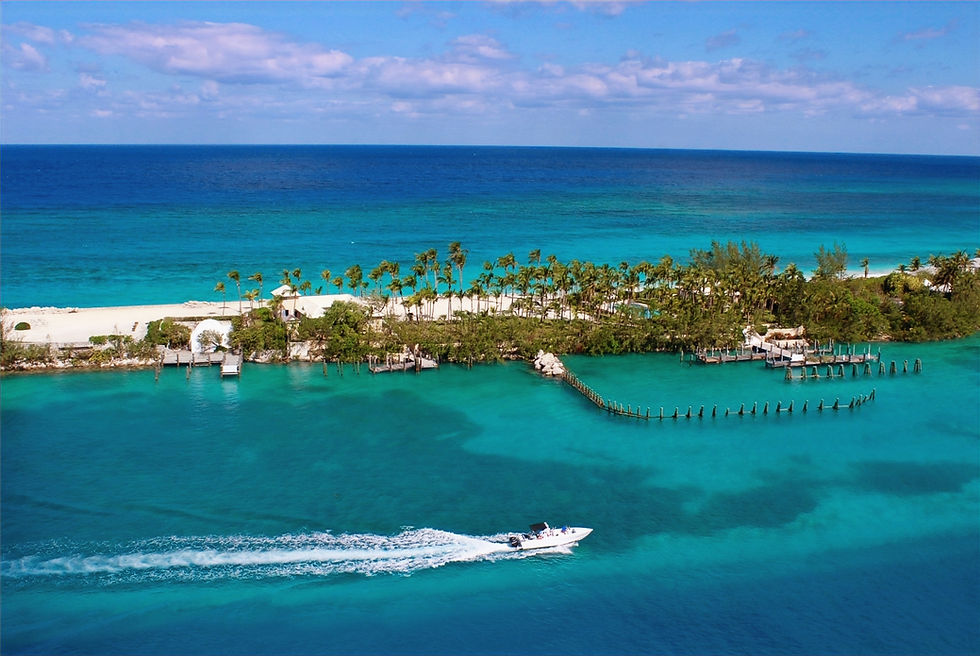The IHO enlarges its global network to build up ocean eco-management.
- M Abti
- Aug 6, 2025
- 3 min read
Updated: Nov 18, 2025
Monaco welcomes the headquarters of a key international body in ocean management. Its intergovernmental structure is grounded on hydrography, which is the basis of every action linked to the sea, setting sail to safety in maritime transport and conservation of marine ecosystems. The International Hydrographic Organisation - IHO - headquartered in Port Hercules, leads and coordinates national hydrographic offices globally, by determining shared standards to facilitate consistency in nautical cartography and the use of technical information flows. The accession of individual countries is therefore an element of great importance for increasing IHO's effort towards a more sustainable use of ocean resources.
The recent accession of The Bahamas to the hydrographic network represents a crucial stage in this direction. The Commonwealth of The Bahamas plays a strategic role in the Caribbean both as a maritime hub and a treasure chest of biodiversity. Made of more than seven hundred islands, this archipelago has long been considered a privileged tourist destination for the beauty of its crystal clear sea and heavenly sandy beaches. Besides tourism, which represents 50% of the national GDP, Bahamas' ecosystem is much more than that. The territory, mainly coastal (95% of the total surface area) is home to species of naturalistic interest. Bottlenose or striped dolphins, an endemic small fish (Coryphopterus glaucofraenum), some local brain corals and various molluscs as well as the green and hawksbill turtles are permanent hosts in the Caribbean seas.

The Bahamas has clear ideas. By joining IHO, the Caribbean archipelago aims at establishing an effective hydrographic information system to provide accurate data base to improve marine navigation, tourist hospitality and sustainable development to comply with the International Convention for the Safety of Life at Sea - SOLAS - an international agreement focusing on safety standards and the protection of human beings at sea, made urgent after the Titanic tragedy in 1912.
In particular, the Country aims to focus on specific priorities: from risk reduction in the shipping to natural ecosystems, mangrove forests, seagrass beds and coral reefs conservation, from detection of any action against law (e.g.: illegal fishing, undue exploitation of marine and underwater mineral resources to climate mitigation considering that the island territory is particularly exposed to extreme weather events, notably hurricanes, rising sea levels and coastal erosion. The creation of a systematic plan to facilitate Eco-tourism is also on the agenda as a main priority

The Rear Admiral Luigi Sinapi, IHO Director, pointed out: « For the Commonwealth of The Bahamas, being a Member of the IHO, represents not only a chance to improve the Maritime National Policy, but above all a unique opportunity to become part of an International Organisation where cooperation and knowledge of the marine environment represent the real added value for domestic progress and sustainable development of a national economy that has the Ocean as its greatest source of wealth and well-being ».
The Bahamas Maritime Authority (BMA) will be supported by the IHO Capacity Building made of a panel of experts who are going to provide assistance and training on hydrography, marine data management, and chart production, offering the key to the right interpretation of data.
Joining the IHO network takes an important step for the Bahamian Government, as highlighted by Kimberley Lam, Head of the Maritime & Ocean Affairs Bureau, Ministry of Foreign Affairs of the Bahamas: « As new members of the IHO, we look forward to collaborating with other Member States and the Organisation to enhance hydrographic capabilities, share knowledge, and contribute to global maritime safety and efficiency ».
The Bahamas therefore aims to increase its international position to become a leading player in the sustainable management of the seas, in close cooperation with the international community. ***

✒️ Maurice Abbati
Strategic Communication Specialist, Editor in Chief, Journalist, Executive.
Lecturer and Author in English in the field of Environmental Communication to foster Circular and Blue Economy.
































































Comments